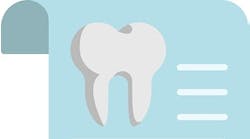We ask two experts the same question to give you two different answers on a complex issue
QUESTION
"I've read several articles about practice valuations, and usually the term 'fair market value' is used. I recently attended a transition seminar and the lecturer used the term 'market value,' so I am confused. Is there a difference?"
Tom Snyder, DMD, MBA
Yes, there is a significant difference between fair market value and market value. Oftentimes, practice valuators interchange the terminology. However, this is not totally accurate. Fair market value as determined by the Internal Revenue Service is defined as a price in which property would exchange hands between a willing buyer and willing seller when the former is not under any compulsion to buy and the latter is not under any compulsion to sell, both having reasonable knowledge of the relative facts. However, since most practice valuations are done for a stated purpose, either a practice sale or a partnership buy-in, it is important to note the fair market value definition is not applicable, because with a fair market value approach, we're dealing with a universe of hypothetical buyers and sellers. However, in the market value approach, it involves an actual transaction because one of the parties is identified (usually the seller). Actually, the seller pays a fee or a commission to complete a transaction, so it is truly not an arm's-length transaction. Therefore, the definition of market value is the appropriate term in this instance.
Tom Snyder, DMD, MBA, is the director of transition services for Henry Schein Professional Practice Transitions. He can be reached at (800) 988-5674 or [email protected]
Gretchen Lovelace, MS, CFP, CPM
The International Glossary of Business Valuation Terms was developed jointly by national organizations governing and teaching business valuation. This glossary defines fair market value as: The price, expressed in terms of cash equivalents, at which property would change hands between a hypothetical willing and able buyer and a hypothetical willing and able seller, acting at arm's length in an open and unrestricted market, when neither is under compulsion to buy or sell and when both have reasonable knowledge of the relevant facts.
In order to understand how this differs from market value, you must first know that business valuation has three (and only three) approaches: asset approach, income approach, and market approach. In most dental valuation circles, under the market approach, market value refers to the dollar amount obtained using the direct market data method.
This means the price and earnings of previously sold dental practices of similar size and location are used to determine a value of the subject dental practice to be sold. This is very similar to setting a price on a house in real estate. If comparable dental practices in the area have sold for 64% of their gross collections, then the market value of the subject practice would be 64% of that practice's gross collections.
There are, however, times when market value is too high a price to pay for a practice. If after paying market value for a practice, a buyer cannot pay the practice expenses, pay the bank note, and still earn a decent income, then market value was a bad deal.
The amount the buyer takes home after paying expenses and the bank note (cash flow) may be even more important than market value. A competent broker will show you the results of both cash flow (income approach) as well as the market value (market approach). Knowing both the cash flow and the market value is much more important than discussing the semantics of market value vs. fair market value in buying a practice.
Gretchen Ohlmeyer Lovelace, MS, CFP, CPM, is the past national president of ADS, Inc. Gretchen lectures at LSU School of Dentistry and at national, state, and local dental associations. Her primary focus is ethical practice transitions. Contact her at [email protected] or 877-674-9564.





